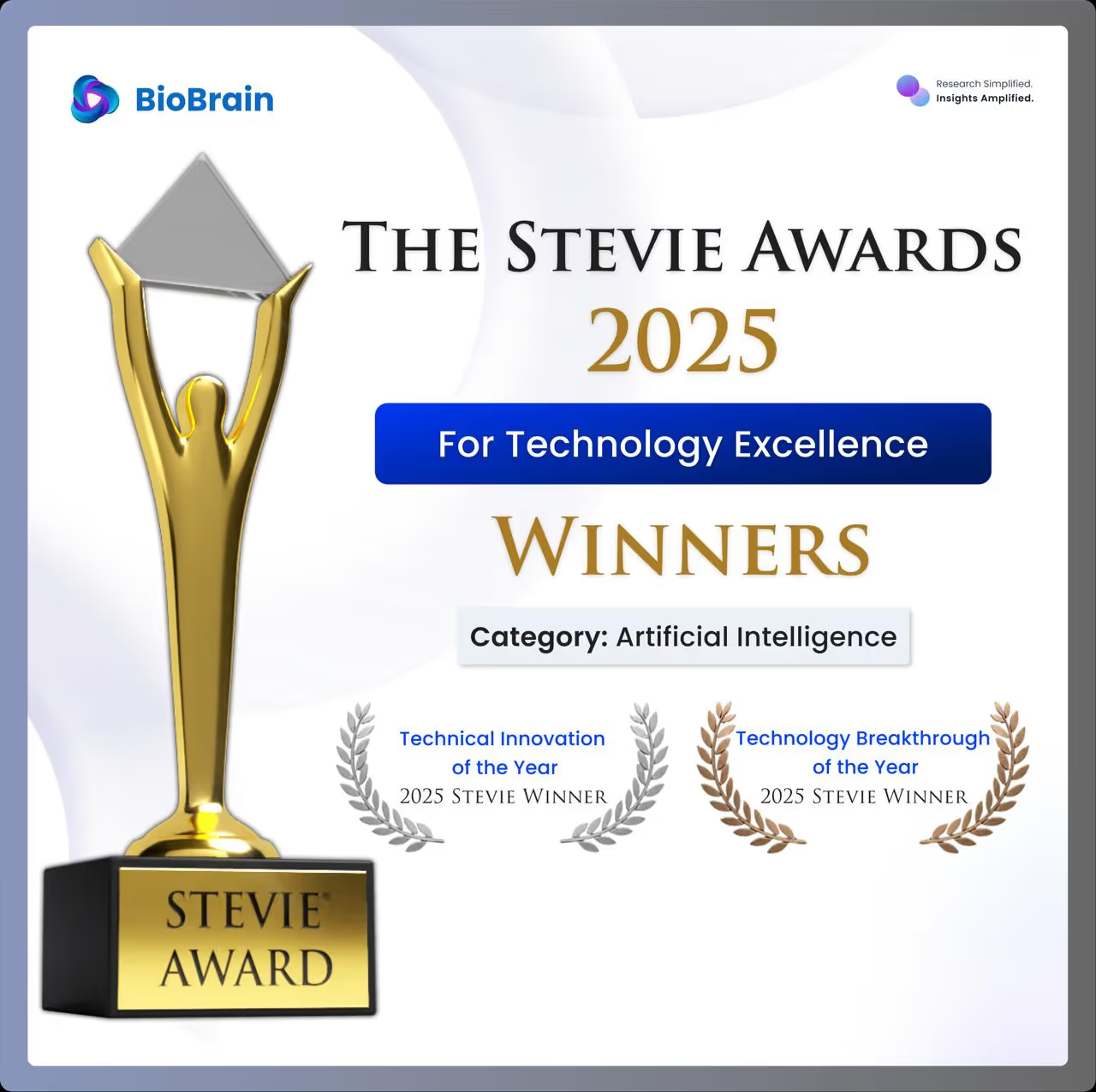In today's fast-paced marketing landscape, understanding how your brand resonates with consumers is more crucial than ever. Real-time brand health tracking empowers companies to continuously monitor key performance metrics, enabling swift assessments of marketing campaign impacts and informed adjustments based on consumer sentiment. This proactive approach not only enhances brand perception but also drives strategic decision-making.
By employing Agile MROps, companies can ensure they remain responsive to consumer needs and market dynamics, ultimately fostering a healthier brand that resonates with its audience.
Understanding Brand Health Tracking
Brand health tracking is a systematic approach to monitoring and analyzing a brand's performance in the market. It involves assessing various metrics that reflect consumer perceptions, behaviors, and overall brand effectiveness. This ongoing process helps organizations understand how well they are delivering on their brand promises and where improvements can be made. By continuously evaluating these metrics, brands can adapt their strategies to enhance market presence, optimize marketing efforts, and ultimately drive growth.
Key Metrics to Monitor
Brand Awareness
This metric measures how familiar consumers are with a brand. High brand awareness indicates that a brand is recognized within its target market, which is essential for driving sales and building customer loyalty. Techniques for measuring brand awareness include surveys that assess recall and recognition among consumers.
Brand Sentiment
Brand sentiment gauges consumer feelings towards a brand, typically categorized as positive, neutral, or negative. This metric is crucial for understanding public perception and can be measured through social listening tools that analyze online mentions and feedback.
Share of Voice (SOV)
Share of voice measures a brand's presence in conversations compared to its competitors. It reflects how much of the market's attention a brand captures through advertising, social media, and other channels. A higher SOV often correlates with increased brand visibility and consumer consideration.
Brand Loyalty
This metric assesses the extent to which customers repeatedly choose a brand over competitors. High brand loyalty indicates strong customer satisfaction and trust, often measured through Net Promoter Score (NPS) surveys or repeat purchase rates.
Market Share
Market share represents the percentage of an industry or market that a particular brand controls. Monitoring this metric helps brands understand their competitive position and identify opportunities for growth within their sector.
By tracking these key metrics, brands can gain valuable insights into their health in the marketplace, allowing them to make informed decisions about marketing strategies, product development, and customer engagement initiatives.

Importance of Real-Time Monitoring
Immediate Impact Assessment
In the fast-paced world of marketing, the ability to quickly assess the effectiveness of campaigns is paramount. Real-time monitoring allows companies to track key performance indicators (KPIs) as they happen, providing immediate insights into how marketing efforts are resonating with consumers.
This instantaneous feedback loop enables marketers to evaluate metrics such as engagement rates, click-through rates, and conversions in real time.
For example, if a new advertising campaign is launched, real-time analytics tools can immediately show how audiences are responding. If the data reveals low engagement or negative sentiment, marketers can swiftly pivot their strategies—adjusting messaging, reallocating budgets, or even changing channels to optimize performance. This agility is crucial for capitalizing on emerging trends and addressing potential issues before they escalate.
Informed Decision-Making
Timely data is essential for informed decision-making in marketing. Real-time monitoring provides marketers with up-to-the-minute insights that allow for strategic adjustments based on consumer behavior and market dynamics.
With access to current data, businesses can identify what is working well and what isn’t, enabling them to make data-driven decisions that enhance campaign effectiveness.
For instance, if a particular social media ad is performing exceptionally well, marketers can increase its budget or extend its reach while simultaneously reducing spend on underperforming ads.
This level of responsiveness not only maximizes ROI but also fosters a culture of continuous improvement within marketing teams.
Enhanced Responsiveness
Real-time monitoring allows businesses to react quickly to market changes or consumer feedback. This agility enables companies to capitalize on emerging trends and mitigate risks before they escalate, ensuring they remain competitive in a fast-paced environment.
Improved Customer Engagement
By leveraging real-time data, brands can engage with customers more effectively. Timely interactions based on current events or consumer behavior make customers feel valued, fostering loyalty and encouraging repeat business.
Increased Marketing Relevance
Real-time insights help marketers tailor their messages to align with current trends and consumer sentiments. This relevance enhances the effectiveness of marketing campaigns, driving higher engagement and conversion rates.
Data-Driven Strategy Adjustments
Real-time monitoring provides immediate access to performance metrics, enabling marketers to make informed adjustments to their strategies on the fly. This leads to optimized spending and messaging that resonate better with target audiences.
Competitive Advantage
Companies that utilize real-time monitoring can stay ahead of competitors by quickly adapting to market shifts and consumer preferences. Being first to respond to trends or customer needs can significantly enhance brand visibility and reputation.
Personalization Opportunities
Real-time data allows for more sophisticated personalization in marketing efforts. Brands can customize their communications based on immediate consumer behavior, leading to more meaningful interactions and higher conversion rates.
Operational Efficiency
Real-time monitoring helps identify operational issues as they arise, allowing for swift corrective actions. This efficiency can lead to cost savings and improved service delivery, enhancing overall business performance.
Better Risk Management
By continuously analyzing real-time data alongside historical trends, businesses can enhance their risk management strategies. They can quickly assess potential impacts of external factors, such as economic shifts or natural disasters, allowing for proactive planning
Incorporating real-time monitoring into marketing strategies not only improves responsiveness and engagement but also drives overall business success through informed decision-making and operational efficiency.

Leveraging Agile MROps for Brand Health Tracking
Continuous Monitoring
Agile MROps enables ongoing tracking of brand performance metrics by integrating automated data collection and analysis processes. This continuous monitoring framework allows organizations to gather real-time data from various sources, such as social media, customer feedback, and market trends.
By utilizing automated tools, brands can consistently track key performance indicators (KPIs) like brand awareness, sentiment, and loyalty without the delays associated with traditional data collection methods.
For instance, organizations can set up dashboards that provide live updates on brand health metrics. This means that marketing teams can instantly see how campaigns are performing and how consumer perceptions are shifting. The ability to monitor these metrics continuously ensures that brands remain responsive to changes in the market and can quickly identify areas needing attention.
Automation Benefits
One of the most significant advantages of Agile MROps is the automation of data collection and analysis. By automating repetitive tasks—such as survey distribution, data entry, and preliminary analysis—organizations can significantly reduce manual effort and minimize the risk of human error. This not only speeds up the research process but also increases the accuracy of the data collected.
For example, automated systems can streamline the process of gathering customer feedback through surveys or social listening tools. Instead of manually compiling responses, Agile MROps allows for immediate aggregation and analysis of data, providing teams with actionable insights faster than ever before. This efficiency translates into cost savings and allows marketing teams to allocate their resources more effectively.
Real-Time Insights
Agile MROps provides instant feedback on consumer sentiment and market trends, enabling organizations to make informed decisions based on the most current data available. This real-time insight is crucial for adapting marketing strategies quickly to align with consumer preferences and behaviors.
For example, if a marketing campaign is generating negative sentiment or low engagement rates, real-time monitoring allows teams to pivot their strategies almost immediately—whether by adjusting messaging, changing promotional tactics, or reallocating budget resources.
This agility ensures that brands can maintain a positive perception in a rapidly changing environment. Moreover, real-time insights help brands stay ahead of competitors by identifying emerging trends before they become mainstream.
By leveraging Agile MROps for brand health tracking, organizations can not only enhance their understanding of consumer behavior but also position themselves as proactive players in their respective markets.
In summary, leveraging Agile MROps for brand health tracking facilitates continuous monitoring, automates data processes for increased efficiency, and provides real-time insights that empower brands to adapt swiftly to market dynamics. This comprehensive approach enhances overall brand performance and fosters long-term success in an increasingly competitive landscape.
Navigating Brand Performance: How BioBrain Enhances Health Tracking
BioBrain enhances brand health tracking through its innovative Agile MROps framework, which incorporates automation and agile research practices. Here’s how BioBrain specifically aids in this area:
Automated Data Collection
BioBrain streamlines the data collection process by automating surveys and feedback mechanisms. This reduces manual effort and minimizes errors, ensuring that brands receive accurate and timely data on consumer perceptions.
Real-Time Insights
The platform provides real-time monitoring of brand performance metrics, allowing companies to assess the effectiveness of marketing campaigns instantly. This enables quick adjustments based on current consumer sentiment and market trends.
Enhanced Research Efficiency
By implementing agile research practices, BioBrain helps organizations overcome the challenges of traditional manual processes, which often lead to lengthy turnaround times and high operational costs. Automation solutions improve efficiency, allowing brands to deliver insights faster.
Improved Accuracy
With automated coding and data analysis, BioBrain reduces inconsistencies that can arise from manual processes. This enhances the credibility of research findings, crucial for making informed strategic decisions.
Stronger Client Relationships
By providing quicker and more accurate insights, BioBrain fosters stronger relationships between brands and their clients, ultimately leading to improved customer satisfaction and loyalty.
In summary, BioBrain's Agile MROps framework significantly enhances brand health tracking by automating processes, providing real-time insights, improving efficiency and accuracy, and strengthening client relationships.













